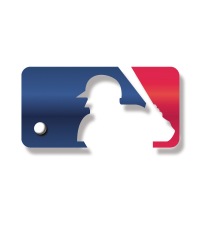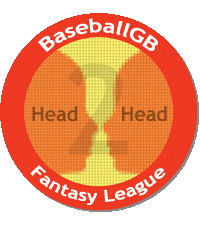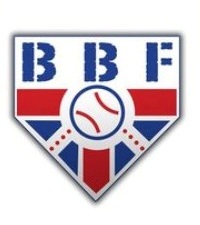 MLB.com announced on Friday the subscription details for the 2012 versions of their multimedia services.
MLB.com announced on Friday the subscription details for the 2012 versions of their multimedia services.
Baseball fans who have subscribed in seasons past will find that the range of features offered are predominantly the same as they enjoyed in 2011.
Prices have increased slightly, but this is in part due to MLB.com listening to their customers and making the MLB.TV Premium package more easily available on a wider range of platforms.
MLB Premium has increased by $5 to $125 for the year-long subscription, amounting to approximately £79.45. The standard MLB.TV package has increased by $10 to $110, which basically amounts to £70.
For fans in the UK, both packages provide live and on-demand access (audio and video) to Spring Training games, all 2,430 regular season games and all postseason games for the whole year. Fans in North America have a more limited, but still plentiful, choice due to blackout restrictions covering games being played in their home territory, games covered on national TV and all postseason games.
The increase in the standard price reflects MLB.com’s pattern of recent years of making the standard and premium services closely aligned.
That’s not necessarily what my preference would be: a slightly cheaper and more basic service would make for greater choice between the two packages and potentially encourage even more people to sign up. However, while everyone would like a service for less money, I’m probably in a minority when it comes to being happy to accept a more basic service. The previous price rise for the standard service reflected the introduction of the highest quality, HD-style picture and for many users accustomed to watching games on TV, it is the picture quality that is key to enjoying the internet-streamed service.
In terms of features, the benefits of subscribing to the Premium service are the ability to pick home or road TV feeds (where available) and to use the Mosaic feature, which allows you to watch up to four games at once. The price difference therefore really comes down to the additional options that the Premium package offers in terms of using MLB.TV on other devices. Again, that probably reflects the majority opinion of what users want. They want a high quality picture with lots of features as standard, so the ‘Premium’ add-on is therefore greater usability.
That greater usability is directly shown in the price difference between the two products and it addresses one of the main gripes MLB.TV subscribers have had over the last two years.
MLB.com’s At Bat app is a wonderful bundle of baseball joy and the relatively high annual price ($15) hasn’t deterred many people from buying it each year. However, a substantial number of the people who enjoy the At Bat app are the same people who want to subscribe to the MLB.TV service. And there came the sticking point. The $15 app price included radio feeds for all games, but not the MLB.TV video streams. To access those through a mobile device, you had to pay full price for MLB.TV and then buy At Bat at the full price on top.
So the obvious answer, which has been implemented this year, was to provide an option to buy MLB.TV and At Bat effectively as one package. That’s where the $15 (the price of the At Bat app) difference between the standard and premium MLB.TV services comes in.
Whether that makes for a saving depends on what service(s) you bought last year. If you bought MLB.TV Premium and the At Bat app then you’ll save $10 overall, otherwise you’re probably going to be paying a little more.
The new pricing structure clearly makes sense from MLB.com’s point of view, learning from the experience of MLB.TV becoming an established service for many baseball fans.
They know that their standard product is a big draw, so the idea appears to be to price the standard and premium at a close level, adding extra usability (not just via At Bat, you will also be able to watch it through your XBox as well as other console devices this season) and extra games (you can add the Minor League MLB.TV equivalent for $20 – £12.71 – half its normal cost) to encourage as many people as possible to upgrade and spend those extra $15/$35 that really add up over thousands of subscriptions.
And that makes complete sense: the sort of person who is already keen enough – has budgeted for the cost and has the broadband capability – to sign up for MLB.TV will likely be happy to spend a little bit more to make a great service, that they are going to use on an almost daily basis, even better.
The Gameday Audio service – radio feeds and graphics that mirror a TV broadcast – also still comes in at a bargain $20, £12.71 for us. So if you can’t justify the cost of the MLB.TV route, or you don’t have the broadband capability, then MLB.com will continue to offer an excellent alternative.
Every year when the subscription details are announced, I’m always reminded that the simple fact that this service exists is an incredible thing worth celebrating. The potential to pick and choose to watch or listen to any game you want, every single day of the baseball season and during the offseason as well, is a glorious luxury when the alternative is the very slim pickings offered by the British TV and radio route (although the coverage provided by ESPN America and BBC 5 Live Sports Extra is very welcome in itself).
At £70 or £80, it’s not exactly loose change for most of us, but then again it represents remarkable value for money if you use it to watch or listen to lots and lots of games over the course of the year. And let’s face it, why wouldn’t you?!
With the subscription details out there to be considered and budgeted for, all we need now are for the games to start. Roll on Spring Training and for getting home from work to drift away on an evening of relaxed baseball broadcasts from the sunny climes of Arizona and Florida.
 Ryan Braun is one of the brightest young stars in Major League Baseball, so the fact that he will be in a Brewers uniform on Opening Day rather than starting a 50 game suspension should be a good thing.
Ryan Braun is one of the brightest young stars in Major League Baseball, so the fact that he will be in a Brewers uniform on Opening Day rather than starting a 50 game suspension should be a good thing.




